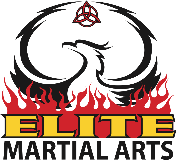Martial arts training demands physical, mental, and emotional dedication, often pushing practitioners to their limits in pursuit of mastery. However, amid rigorous training schedules and challenging workouts, it’s crucial for martial artists to prioritize self-care. Balancing training with self-care practices not only enhances performance and recovery but also promotes overall well-being and longevity in your martial arts journey. Here are essential self-care strategies to integrate into your routine:
Prioritizing Rest and Recovery
Rest and recovery are vital components of effective training. Allow your body sufficient time to recover between intense workouts to prevent overtraining and reduce the risk of injuries. Incorporate rest days into your weekly training schedule to rejuvenate muscles, replenish energy levels, and promote physical recovery. Quality sleep is equally essential for muscle repair, cognitive function, and overall health—aim for seven to nine hours of uninterrupted sleep each night.
Proper Nutrition and Hydration
Fuel your body with a balanced diet rich in nutrients to support optimal performance and recovery in martial arts. Prioritize whole foods such as lean proteins, complex carbohydrates, fruits, vegetables, and healthy fats. Stay hydrated throughout the day by drinking an adequate amount of water, especially before, during, and after training sessions to maintain hydration levels and support muscle function. Avoid excessive caffeine and alcohol consumption, as they can interfere with hydration and recovery.
Stretching and Mobility Exercises
Incorporate regular stretching and mobility exercises into your training routine to improve flexibility, range of motion, and muscle elasticity. Stretching helps prevent injuries, reduces muscle tension, and enhances recovery between workouts. Include dynamic stretches before training to prepare muscles for activity and static stretches afterward to cool down and improve flexibility. Incorporating yoga or Pilates sessions can also aid in improving overall flexibility and body awareness.
Mental and Emotional Well-being
Nurture your mental and emotional well-being alongside physical training. Practice mindfulness techniques such as deep breathing, meditation, or visualization to reduce stress, enhance focus, and promote relaxation. Set aside time for activities that promote mental clarity and emotional balance, such as journaling, reading, or engaging in hobbies outside of martial arts. Building resilience through mindfulness practices equips you to manage challenges effectively and maintain a positive mindset during training and competition.
Injury Prevention and Management
Prioritize injury prevention by practicing proper technique, using appropriate protective gear, and listening to your body’s signals during training. Address minor injuries promptly with rest, ice, compression, and elevation (RICE) to facilitate recovery and prevent worsening of conditions. Consult with healthcare professionals or sports medicine specialists for personalized guidance on injury prevention strategies and rehabilitation exercises tailored to your needs.
Balancing Training Intensity
Maintain balance in your training regimen by varying intensity levels and incorporating recovery-focused activities. Alternate high-intensity workouts with lighter sessions or active recovery days to prevent burnout and support long-term progress. Listen to your body’s cues for fatigue or overtraining symptoms, and adjust your training schedule accordingly to ensure sustainable growth and performance improvements over time.
Cultivating Supportive Relationships
Build a supportive network within your martial arts community and beyond. Surround yourself with positive influences, such as training partners, coaches, and mentors who encourage and motivate you to achieve your goals. Share experiences, challenges, and successes with peers who understand the demands of martial arts training, fostering camaraderie and mutual support. Cultivating strong relationships contributes to a nurturing training environment and enhances your overall well-being.
Conclusion
Self-care is an integral part of maintaining balance and longevity in martial arts training. By prioritizing rest and recovery, nourishing your body with proper nutrition, incorporating stretching and mobility exercises, nurturing mental and emotional well-being, preventing injuries, balancing training intensity, and cultivating supportive relationships, you can optimize performance, enhance well-being, and enjoy a fulfilling martial arts journey. Embrace self-care practices as essential investments in your health, resilience, and continued growth as a martial artist.

















